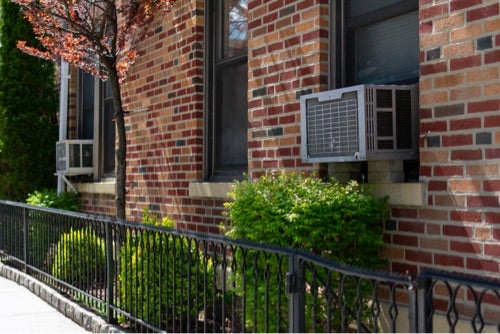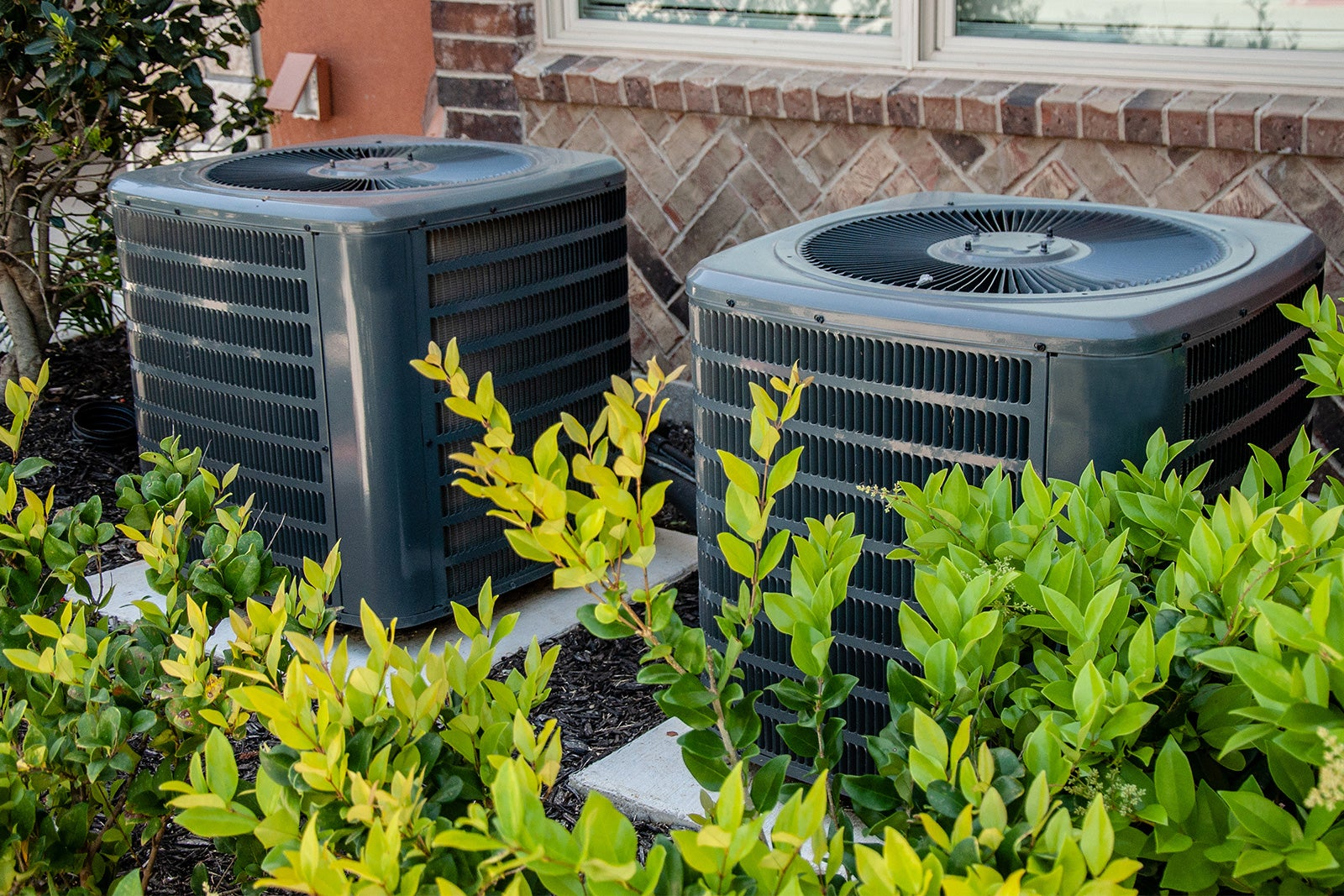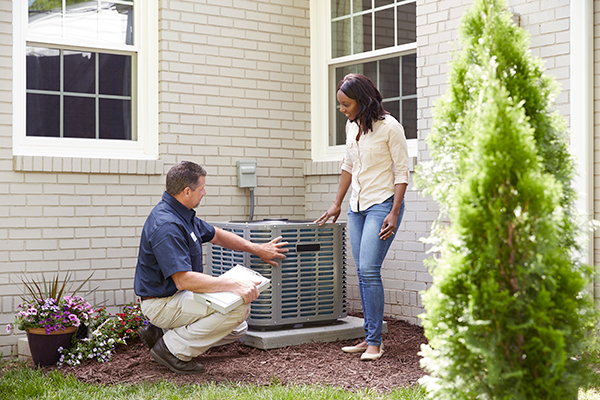Among the many considerations, you want to think about the cost-benefit analysis based on your personal lifestyle, your family’s preferences, as well as your financial situation. At the end of the day, you should value being comfortable in your home.
How to Choose Between Window and Central Air Conditioning
The choice between Window Air Conditioning, or several window AC units, and Central Air depends on a range of factors from the size of the space you want to cool, concerns about energy efficiency, and, of course, cost.
Window AC units are typically less expensive upfront and the installation is generally straightforward and can be done on your own. This is part of the reason why Window AC units have remained a popular choice for those who live in smaller spaces or only want to keep one or two rooms especially cool.
Depending on the setup, proper insulation, and quality of the Window AC unit, these have the potential to be more energy-efficient than central air conditioning systems. Why? Because Window AC units cool an intended space as opposed to an entire house. To be clear, if the intent is to cool a large space using a Window AC unit this will likely be very energy and cost inefficient.
Central air conditioning systems generally require more upfront costs than purchasing Window AC units. A central air conditioning system provides much more controlled and consistent cooling, which is preferred by many and some argue is healthier for your body. Walking in and out of an icy chamber created by a Window AC is not always a pleasant experience and can be physically jarring.
What do The Professionals Recommend?
As in most cases, the professionals are still going to defer to your personal circumstances and preferences. Bearing this in mind, licensed HVAC professionals can access your house and inform you about the pros and cons of having a window unit vs. central air.
Factors a homeowner needs to consider include:
- The size of your spaces
- Energy efficiency goals
- Your personal budget
Both Window AC units and Central AC require annual maintenance to ensure safety, reliability, air quality, and efficiency. If you have Central Air Conditioning, you should have a licensed HVAC professional service your air conditioning system on an annual basis.
Wondering what are the best Central AC systems? Look no further!
The Pros and Cons of Central Air Conditioning
One of the more obvious benefits of central air is the consistency in temperature. When Central AC systems are working properly, a Central AC system that is equipped with smart home sensors should be able to make adjustments to temperatures based on your preferences.
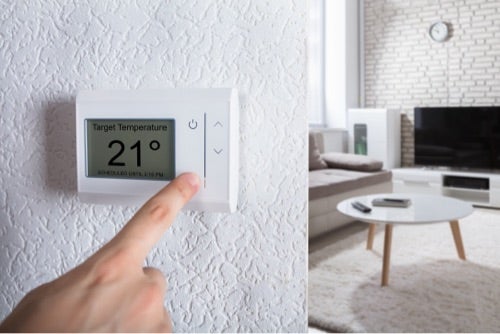
You may want to set a timer to lower the temperature in your bedroom so it is closer to optimum sleeping temperature. You may also want to set a set to begin cooling your home while you are returning from work. Timed cooling allows you to save energy during times when you are not at home.
Additionally, many systems, such as Honeywell, have apps that allow you to change the temperature in your home remotely. This allows you to make adjustments in unexpected situations. This can be a terrific benefit if you are away for the weekend and want to return to a nice cool house.
The ability to remotely change the temperature settings in your home can save energy if you forget to change the thermostat before leaving your house for the day.
The many benefits of central air conditioning systems include but are not limited to:
- Consistent Cooling
- Window AC units and portable air conditioning products blast air in a manner that is inconsistent.
- Improved Air Quality
- Central air conditioning systems have filters, which should be replaced annually, that help to remove pollutants and allergens from the air, improving the overall air quality in your home.
- Noise Reduction
- Central Air Conditioning is typically far quieter when compared to a Window AC unit.
- Improved Energy Efficiency
- Central AC is usually more energy-efficient and can help reduce your overall energy bill.
- Increased Home Value
- Central air is a desirable feature in a house and will likely increase the value of your home. This makes Central Air Conditioning a worthwhile investment if you are considering selling your home down the road.
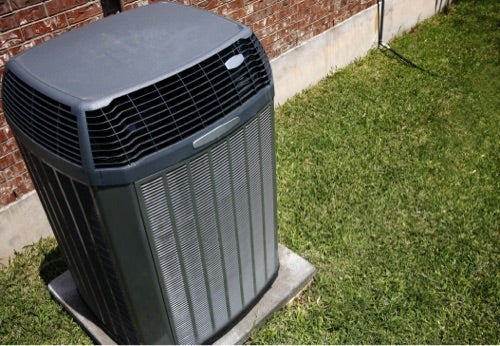
Potential disadvantages associated with Central Air Conditioning systems:
- Cost
- Installation of central air can be expensive, especially if your house does not already have the necessary ductwork.
- Running the system can be expensive, especially if you live in a location with high electricity rates.
- Maintenance
- Central air conditioning systems require regular maintenance on an annual basis
- Each year, Central AC filters should be changed, the ductwork should be cleaned, and the unit itself should be serviced by a trained HVAC professional.
- Avoiding or neglecting maintenance can result in reduced efficiency, higher electric bills, system malfunction, or even complete system failure.
- Installation Time
- Installing a central air conditioning system can take several days. This might be disruptive to your daily routine and may require you to temporarily relocate during the installation process.
- Space Requirements
- Central AC systems require space for the air handler unit, which is usually located in the attic or basement. This can be a problem for homes with limited space and may require modifications to your home's existing infrastructure.

